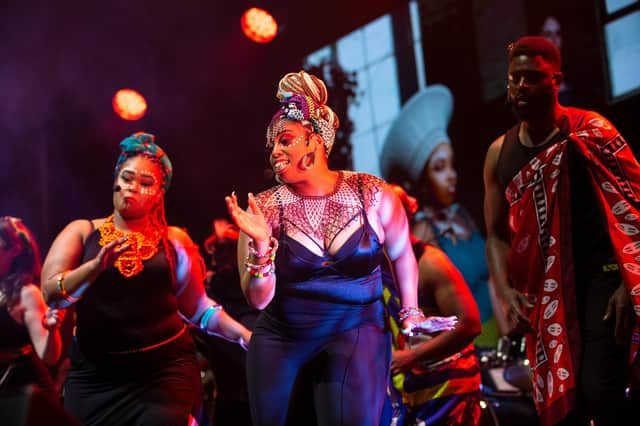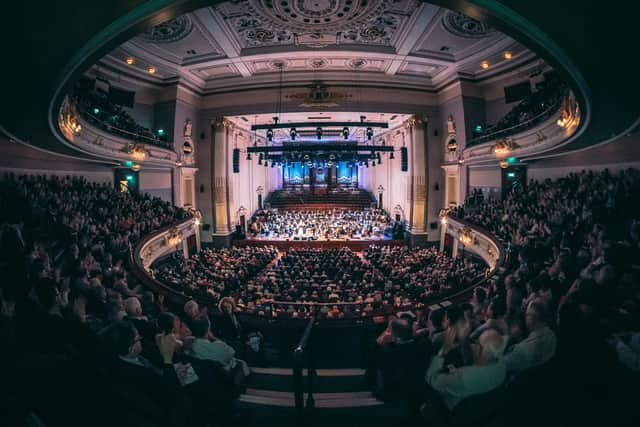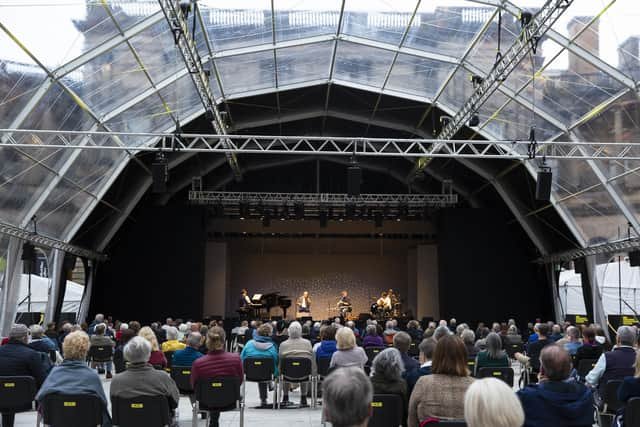Future vision for eco-friendly Edinburgh festivals pledges no return to ‘status quo’


A long-term vision commits organisers to strike a better “balance,” help restore a healthy economy in Edinburgh and improve the quality of life of people in the city.
Backed by the key funders of the festivals, it includes a firm pledge to turn Edinburgh into a beacon of “how a world-leading sustainable festival city could look and feel by the year 2030.”
Advertisement
Hide AdAdvertisement
Hide AdPromotion of the festivals would aim to attract “responsible visitors” to the city as part of the “transition to a new future,” which has been announced ahead of their 75th anniversary in 2022.


A new series of ambitions are a significant shift away from a previous long-term strategy, Thundering Hooves, which dates back 15 years. The last version, published six years, warned the city and its festivals not to “rest on their laurels and become complacent.”
Although audience numbers have boomed since then, concerns have been raised about the impact of the festivals on the city’s Old Town in particular.
It is hoped the new new vision, which seeks to nurture “distinctive, inclusive, sustainable and outward-looking” festivals , will provide a template for other cultural cities while “future-proofing” Edinburgh’s own status as a world-leader.
The vision statement is expected to underpin a long-term strategy to shape the future of the festivals, which have come under growing scrutiny in recent years as audience numbers have risen to more than 4.4 million for Edinburgh’s summer events alone.It has been unveiled by the Edinburgh Festivals Forum, which has worked with the festivals to maintain their reputation and success over the last 14 years, and includes representatives of the city council, Edinburgh Chamber of Commerce, the Scottish Government, VisitScotland and Edinburgh University.


The new vision statement declares: "To realise a truly sustainable future, all those who can lead change need to join forces and help address the key challenges – securing Edinburgh’s world leading festival city for the generations to come.
"The way people are now being drawn to culture to find meaning, joy and balance in their lives echoes the founding spirit of the festivals after World War Two.
Advertisement
Hide AdAdvertisement
Hide Ad"Now is the time to map out how Edinburgh needs to future proof our world-leading festival city so we can be at the forefront of leading positive change.”
Key aims of the 2030 vision include renewing existing facilities and creating new “people-centred spaces” suitable for both local and large-scale cultural events which will reduce the environmental impact of the festivals, greater dispersal of cultural events and infrastructure throughout the city, and more pedestrianisation of the city centre.
The blueprint would ensure there are "rewarding cultural careers" for festival and event workers, more benefits for local businesses from the staging of major events, and “inclusive festival experiences” regularly on offer in the city.
There are also new commitments that the city’s main events will forge stronger links with local communities, as well reflect a diverse range of cultures.
The festivals vision states: "There is no returning to the status quo: a transition to a new future is needed, with solidarity and sustainability as guiding values.
"Success means achieving a balance of cultural, social, economic and environmental sustainability. For a thriving future, the festivals want to be able to do even more to support people’s quality of life and social bonds.
"At the same time, Edinburgh’s festivals have a vital role to play in helping to restore a healthy economy, to offer rewarding work, and share the opportunities and benefits widely.
Advertisement
Hide AdAdvertisement
Hide Ad"Sustaining Edinburgh’s place as host to a reimagined world-class festivals cluster will also deliver nationwide benefits for wellbeing and creative work, and help to rebuild the global standing of our city and nation through a new internationalism.”
Susan Deacon, chair of the Edinburgh Festivals Forum, said: “We’re trying to kick-start a conversation about what the future of the festivals looks like.
“It’s important we do that by looking forward, because if we get stuck looking in the rear view mirror we will lose focus and pace. Cities across the world are thinking about their future now. It’s really important Edinburgh stays ahead of the game, because there’s so much to build on.
"I’m not sure how useful it is for to constantly reference where the city had got to in 2019. We’re in such a different place now.
"The big question for Edinburgh is how to rebuild and recover some of the activity that’s been the hallmark of the city.”
Donald Wilson, culture convener at the city council, said: “We’re incredibly proud to be known as the world’s ‘Festival City’ and are well aware of the positive cultural, social and economic contribution our festivals make to residents and visitors.
"For over 70 years the festivals and the city have evolved together in partnership. The environmental sustainability and inclusive ambitions of the vision will remain central to our efforts as we work to maintain Edinburgh’s place.”
Advertisement
Hide AdAdvertisement
Hide AdPaul Bush, director of events at national tourism body VisitScotland, said: “Edinburgh’s world renowned festivals are a key part of Scotland’s wide-ranging portfolio of signature events, which together with local and national events, play an important role in our communities by sustaining livelihoods and bringing social, cultural and economic change.
“The pandemic has accelerated forward thinking around how events can be both safe and sustainable, and how we can further connect both globally and locally to learn from each other.”
Iain Munro, chief executive of national arts agency Creative Scotland, said: “We very much welcome the long term commitment and vision for Edinburgh’s festivals.
"This recognises the importance of the Edinburgh festivals in sustaining and showcasing Scotland’s vibrant arts and creativity, at home and internationally. This role is particularly important as Scotland’s cultural community focuses on post-pandemic recovery and renewal.”
Comments
Want to join the conversation? Please or to comment on this article.